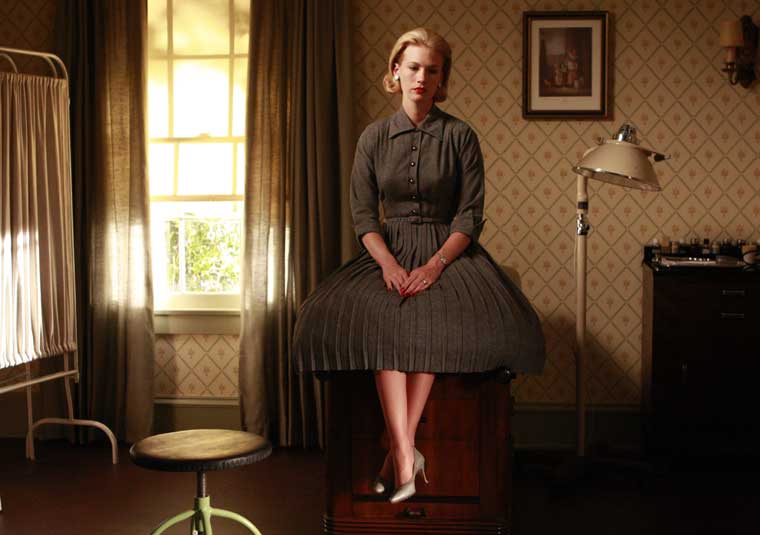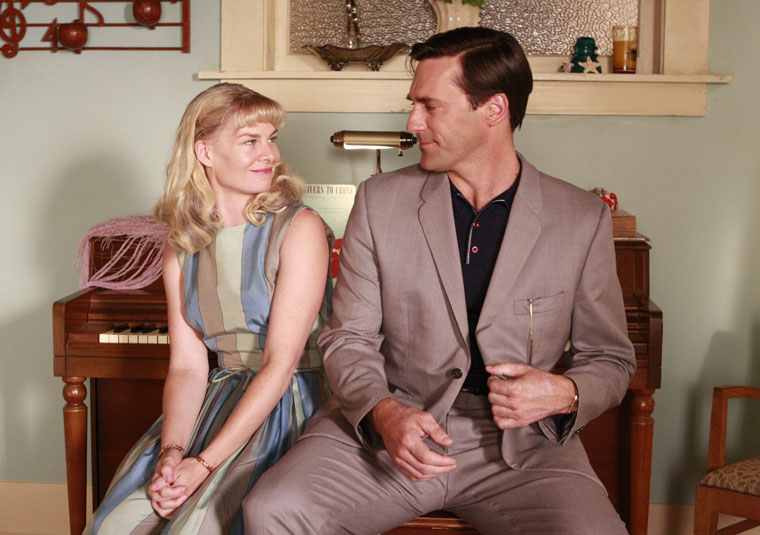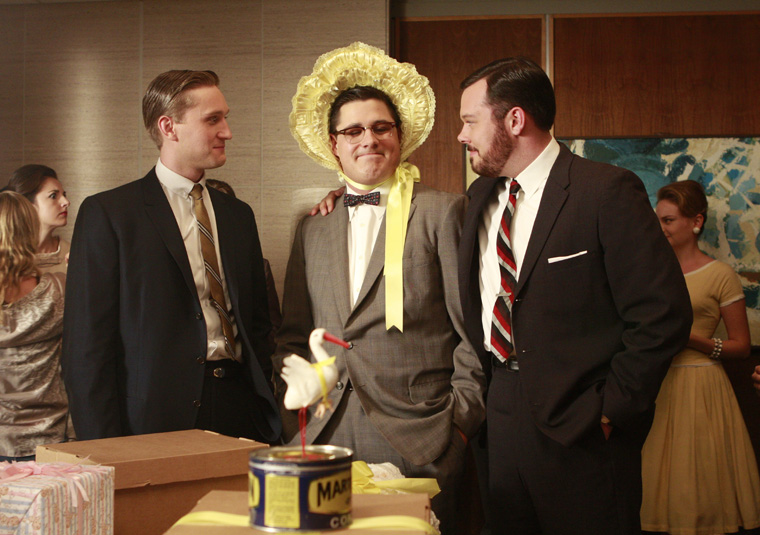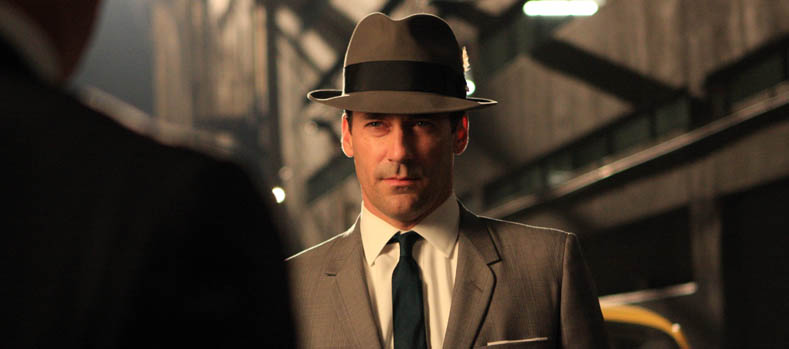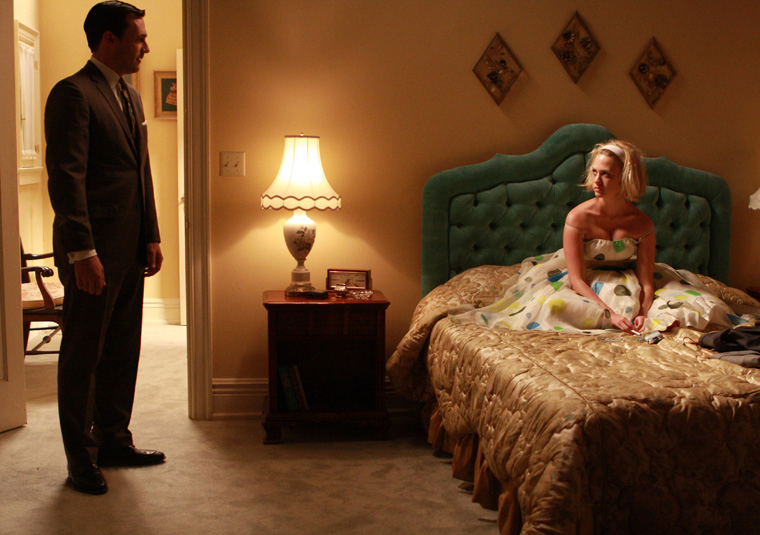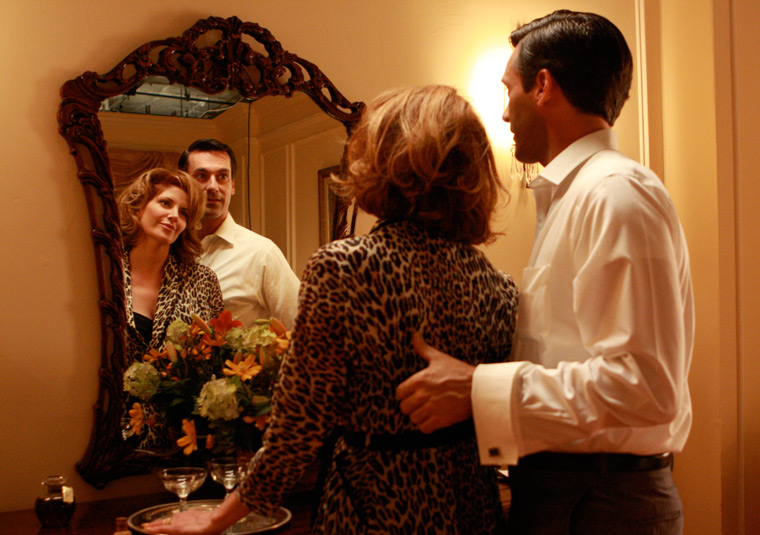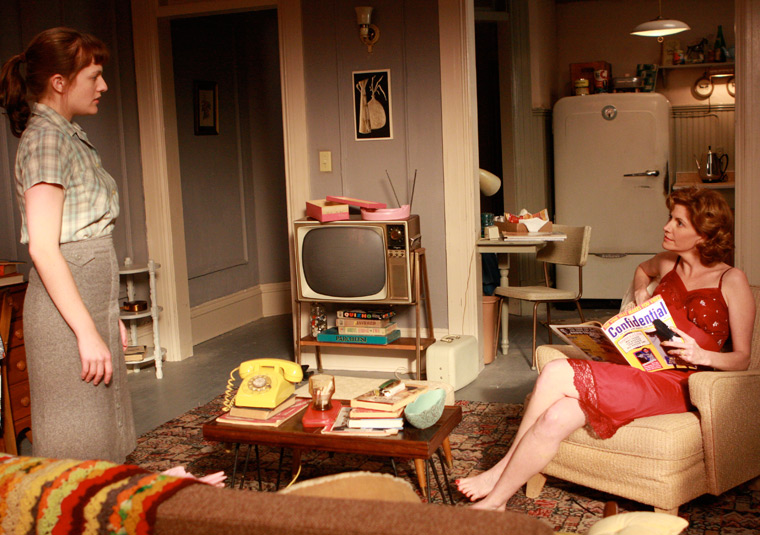It’s been a while since I’ve written here. I’ll be trying to rectify that. Perhaps unsurprisingly, it’s not a TV show but a piece of piss-poor criticism that’s inspired me to write.
I finally got around to reading Daniel Mendelsohn’s piece on Mad Men in The New York Review of Books and…well…wow. What a piece of garbage.
My first thought was that Mendelsohn was just trying to be contrary to earn style and courage points. Then I read further. Turns out he’s just an idiot.
Example:
The writers like to trigger “issue”-related subplots by parachuting some new character or event into the action, often an element that has no relation to anything that’s come before. Although much has been made of the show’s treatment of race, the “treatment” is usually little more than a lazy allusion—race never really makes anything happen in the show. There’s a brief subplot at one point about one of the young associates, Paul Kinsey, a Princeton graduate who turns out—how or why, we never learn—to be living with a black supermarket checkout girl in Montclair, New Jersey. A few colleagues express surprise when they meet her at a party, we briefly see the couple heading to a protest march in Mississippi, and that’s pretty much it—we never hear from or about her again.
Actually, Paul’s dalliance “on the dark side” said a lot about race relations in the early ’60s. Here was an ivory tower liberal out to prove his bona fides at any cost, in this case using a young girl to prove to everyone (himself included) how progressive he was. That pretty clearly sums up the “how” and the “why”. As for why we never heard about her again after the trip to Mississippi, that’s because Paul, when confronted with the brutal reality on the ground, came home with his tail between his legs. Of course he didn’t brag about running from the fight: that didn’t fit his personal narrative.
Or…
…Lane Pryce, the buttoned-up British partner who’s been foisted on Sterling Cooper by its newly acquired parent company in London—you know he’s English because he wears waistcoats all the time and uses polysyllabic words a lot…
Actually, I know he’s British from his OxBridge accent and the fact that he’s Richard Harris’s kid. I’m sure Mendelsohn is most familiar with Harris pater as Dumbledore; perhaps when he grows up he can watch some of the movies from before he was able to speak.
Or…
But then, why not have captions when so many scenes feel like cartoon panels? The show’s directorial style is static, airless. Scenes tend to be boxed: actors will be arranged within a frame—sitting in a car, at a desk, on a bed—and then they recite their lines, and that’s that. Characters seldom enter (or leave) the frame while already engaged in some activity, already talking about something—a useful technique (much used in shows like the old Law & Order) which strongly gives the textured sense of the characters’ reality, that they exist outside of the script.
*sigh* Do I really need to explain how the static blocking echoes the rigidity of the culture? How people rarely move in or out of scenes because they are locked in place?
The way that the scene about Lane and his black girlfriend somehow morphs into a scene about an unnatural emotional current between him and his father is typical of another common vice in Mad Men: you often feel that the writers are so pleased with this or that notion that they’ve forgotten the point they’re trying to make. During its first few seasons the show featured a closeted gay character—Sal Romano, the firm’s art director (he also wears vests). At the beginning of the show I thought there was going to be some story line that shed some interesting light on the repressive sexual mores of the time, but apart from a few semicomic suggestions that Sal’s wife is frustrated and that he’s attracted to one of his younger colleagues—and a moment when Don catches him making out with a bellhop when they’re both on a business trip, a revelation that, weirdly, had no repercussions—the little story line that Sal is finally given isn’t really about the closet at all. In the end, he is fired after rebuffing the advances of the firm’s most important client, a tobacco heir who consequently insists to the partners that Sal be fired. (Naturally he gives them a phony reason.) The partners, caving in to their big client, do as he says. But that’s not a story about gayness in the 1960s, about the closet; it’s a story about caving in to power, a story about business ethics.
(Emphasis mine.) Jesus. Fucking. Christ. This ridiculously shallow criticism from someone who a) was paid to write for a real live magazine and b) claimed to have watched the first four seasons in a marathon session.
It was because Don saw Sal making out with the bellhop that he knew he was gay. And, as it was believed of homosexuals at the time that they were perverts with no control over any of their sexual impulses, he fully expected Sal to service Lee Garner, Jr., just like he’d have expected one of the secretaries to do so. Thinking Sal was an independent agent free to choose whom he would and would not engage with never crossed Don’s mind. That is absolutely a story about gayness in the ’60s.
There really should be an intelligence test given before someone can post their opinions.
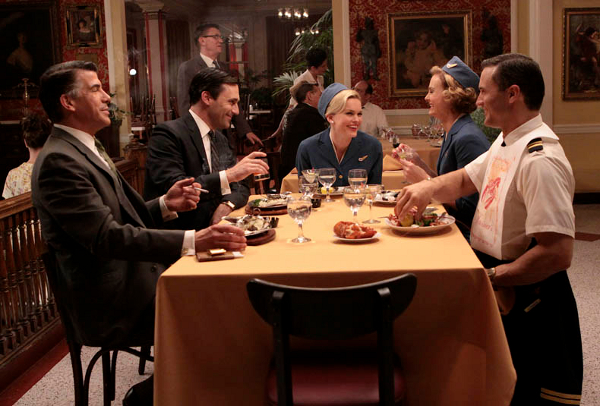 If season two of Mad Men was about long-term bonds and understandings coming to an end, this season looks to be the chaotic aftermath of that. Under conditions of extreme pressure and energy, novel forms blink into and out of existence, quantum states superimpose, and out of the soup new structures crystallize. This is true of societies and communities in the macro world as much as it is true of particles in the subatomic world. Don is doting husband and father/seducer. Joan is counting down the days till she’s gone/manipulating the office with her usual aplomb. The Brits are in charge/are hopelessly out of their league.
If season two of Mad Men was about long-term bonds and understandings coming to an end, this season looks to be the chaotic aftermath of that. Under conditions of extreme pressure and energy, novel forms blink into and out of existence, quantum states superimpose, and out of the soup new structures crystallize. This is true of societies and communities in the macro world as much as it is true of particles in the subatomic world. Don is doting husband and father/seducer. Joan is counting down the days till she’s gone/manipulating the office with her usual aplomb. The Brits are in charge/are hopelessly out of their league.